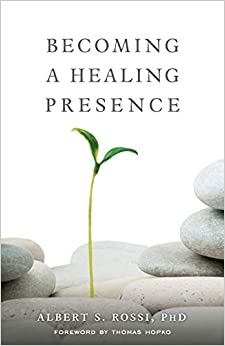This Tuesday we will be discussing Chapter 4 “Vocation as a Way of Life” in Dr. Albert Rossi’s Becoming a Healing Presence. In his book The Prophets, Abraham Heschel theorizes that God did not dictate the words to the prophets, rather God gave the prophet the ability to see as God sees and to hear as God hears, so that the prophet becomes compelled to speak and can speak on behalf of God. In much the same way, Rossi’s first three chapters are intended to help us see and hear God and see and hear as God does, so that we too are compelled into our own divine vocation. As we have looked at over the last several weeks, when we have an inner stillness we begin to develop this gift. Just as still water is more clear than turbulent water, a still heart allows us to see the world and hear those around us more clearly.
In this chapter, Dr. Rossi speaks of every Christian’s vocation – to be the light of the world, the salt of the earth, to extend love to everyone, and to become a healing presence. Our vocation is to see the world as God sees it and to bring the healing presence of the love of Jesus Christ to those in need. This fundamental vocation is not necessarily to go on a mission trip or even to specifically seek out opportunities to serve the less fortunate in our community. Rather, our vocation is simply to be a healing presence to those around us. For example, the Good Samaritan was simply a person going about his regular routine who saw a person in need (unlike the two religious leaders) and acted upon it. Luke 10:25-37. In reading through this chapter, the image I had was that of a stereotypical bartender in a large city who simply listens to the troubles of those who find themselves alone at a bar. Just as prayer is constant, so is our being that healing presence to those around us. As we come back together on Tuesday, I want us to discuss these ordinary circumstances in which we have been Christ to others.
Dinner is at 6. The menu is Shepherd’s Pie. Discussion about 6:45. Hope to see you here. Please bring a friend.
Unless we look at a person and see the beauty there is in this person, we can contribute nothing to him. One does not help a person by discerning what is wrong, what is ugly, what is distorted. Christ looked at everyone he met, at the prostitute, at the thief, and saw the beauty hidden there. Perhaps it was distorted, perhaps damaged, but it was beauty none the less, and what he did was to call out this beauty.
Metropolitan Anthony Bloom (1914-2003), Bishop of the Russian Orthodox Church in Great Britain and Ireland.

